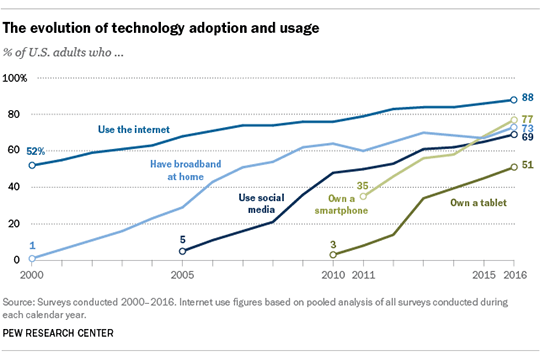How To Charge For A Website In 2023

I often get asked:
"How much should I charge for this website?"
or
"How much to charge for a WordPress website?"
This is a very broad and disputed topic I am covering, but I aim to make this article valuable and understandable for all levels.
My goal is to educate those who don't know much about the value of pricing and also to provide a different viewpoint on this crucial aspect of freelancing to existing web developers and designers.
It's almost 3,600 words in length and I don't directly answer "How to charge for a website?" in the first half, but make sure to read everything as it provides context.
If you prefer watching, here's the (20 min) video:
👆this was my first YouTube video, so keep that in mind 😅
Let's start with some examples:
Example 1:
You want to buy a leather sofa.
How much does a leather sofa cost?
Example 2:
You want to buy a car.
How much does a car cost?
Example 3:
You want to buy a house.
How much does a house cost?
…can you see where I am heading with this?
The reason why each of these examples don't make sense is because the question is too broad…
You need all the information first before knowing how much it will cost.
Sofa example:
Would you like synthetic leather, top grain leather uppers or full grain genuine leather? What colour?
Car example:
Would you like a sedan or an SUV? A four seater or a two seater? New or used?
House example:
How many rooms would you like? Which area would you like to stay?
Too many developers are quick to say $'x' for a 5-page website or $'x' for a 20-page website based on the 'going rate' as you can see here.
This business model frustrates me to be honest.
It frustrates me because the developers have not been educated on how to price their services and to get paid what they are worth.
You are potentially changing someone's business for the better (if you do it correctly) and you are happy to just get paid a small amount for it and then work so hard just to make a small to average income and then start over again the next month?
If that's you or if that's how you think, I hope I can persuade you to think differently about this.
When I first started out and wrestled with the practical side of how much to price a website, I thought a website costs as much as I am willing to accept and as much as the client is willing to pay.
It needs to be cheaper than everyone else for the client to go ahead with it – or so I thought.
Let's move onto something else quickly:
My prediction is that as technology and AI (Artificial Intelligence) advances, the demand for developers to create websites will decrease. With more and more 'drag-and-drop' software available, it's becoming a lot easier for businesses to just create websites themselves.
I wouldn't be surprised if it leads to 'speak-and-create' software whereby the business owner could SPEAK to their version of 'Siri' and say something like:
"Siri, create 3 choices of a luxury watch ecommerce website for me based on the best conversion tactics to get the highest Return on Investment. Pull the data from the Watches Folder and setup the payment portal to allow for PayPal payments as well. Use the URL WatchBrand.com and create the social media profiles as well."
If this theory becomes a reality, the 'commodity market' (i.e. the web developer market who creates websites under $1,000) will become more and more redundant and those who position themselves as experts will ALWAYS have their share of clients.
In fact, it's already here with this AI software.
But you'd always have your share of clients, right?
India is an economically growing country – and so is their population.
Did you know that there are many PhD students who struggle to find jobs?
If they do find jobs, it's often very low paying or in some far away city/town.
I know that this can be disputed as there are a lot of variables to consider, but the overall point I am trying to explain has its truths.
Why is this the case?
PhD students struggling to find jobs?
This surely goes against what is a 'good learning path' that is taught in schools?
I will tell you what the issue is:
Demand vs Supply.
That's it. Nothing more, nothing less.
There's an oversupply of PhD scholars and an undersupply of jobs.
Let me get to the point now:
Web Development is like a PhD. The trend for people wanting to become developers is growing significantly each year as more and more businesses are exposed to the internet.
Look at this chart below:
(Note the incredible growth and the use of internet from 52% - 88%)
2 Takeways From This Data:
- Businesses who are not online will realise they need to be online.
- Businesses who are online, but don't take it seriously will start taking it more seriously.
Conclusion:
Businesses will need freelance web developers to help them create or improve their websites.
Conclusion of the Conclusion:
Be the go-to person in a niche that businesses come to for their solution.
Side note: the question is not whether you become a developer, it's whether you become successful at it. Read this article for more info.
The final point I want you to take away from this is the only way to work less and earn more is to position yourself as an expert.
You CANNOT do this if you are a commodity.
Most Developers Undercharge For Websites

Do you know that there are many people who charge $10k, $30k and $50k+ for websites?
Have you ever thought about how they can close deals at that price?
I have, and this is what I've noticed:
- They don't position themselves as a commodity, but rather as an expert
- They write winning proposals
- They bundle their services
- They communicate effectively
- They add value to the project and over deliver
- They charge a premium price for a premium service, even though it could be done much cheaper by someone else
The next important thing to consider is a mind shift change.
What you are selling is NOT a website…
You are selling a solution which gets the business more customers and/or to increase profits.
I don't care whether it's a coffee shop, a consulting business, an ecommerce store or a blog. The ultimate goal is to create something that gets the business more customers and to increase profits.
Selling your services this way comes with confidence… if you are always stuck creating websites under $1,000, you need to either be in the beginning phase of your career or you have to improve on your skillset.
And I don't (necessarily) mean programming skills…
Most people think you can't earn a decent income with just HTML and CSS knowledge. This is not true. I know many developers who make a good living with just this skillset and I too have done the same.
So, what is it then?
Why can someone who knows more earn less than someone who just knows the basics?
Is it which country they live in? (No)
Is it their degree or qualification? (No)
Is it because they love chicken curry?
Do you have the answer to this?
I'd like to suggest that the reason why people who succeed with less knowledge in one area is because they have better knowledge and skillsets in other areas.
So, 'Freelancer A' who knows Java, Ruby, and 7 other programming languages should surely earn more than 'Freelancer B' who just knows HTML, CSS and other basic backend languages – right?
Again, what's missing here is not seeing the scenario in its full context.
'Freelancer B' may just have better communication skills, better proposals and better business experience than 'Freelancer A' and as a result may be earning more.
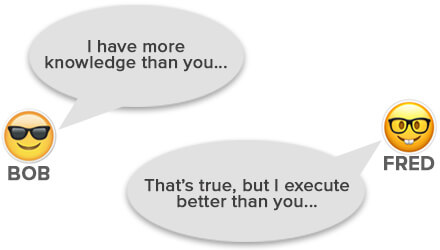
I'd argue that these skills may even be more important than focusing on "what's the next big programming language to learn".
There's a quote I like by Bill Gates:
"I failed in some subjects in my exams, but my friend passed in all. Now he is an engineer in Microsoft and I am the owner of Microsoft."
You can interpret this the way you choose. But don't misinterpret what I am trying to say here…
It's important to have programming knowledge as it's a necessary skill to have, but it shouldn't be the main focus…
It's vital to have knowledge and skills that will help you become a more well-rounded in demand developer as well – such as some of the points mentioned above.
"What Do You Do For A Living?"

When someone asks you what you do – whether you are a full-time developer or a part-time developer, don't say the common thing like:
"I create websites."
Remember, this is what every person including your 12-year-old cousin after coding for one week says.
This limits you to the commodity market and it limits you to their prices.
Depending on who asks me what I do for a living, my answer is generally:
"I do business transformations." or "I create websites that work." or "I help medium to large businesses boost their online sales."
This is a bold (somewhat overly confident) claim, but it's a great starting point to the discussion.
The reason why this is more effective is because the two main questions that generally follow are:
"That's interesting, what do you mean by business transformation?"
or
"What do you do that works?"
This is much better than:
"Oh, that's great. I'll let you know if ever I need a website done."
Let's use another practical example to illustrate this point:
Scenario 1:
Person A: "So, what do you do for a living?"
Person B: "I am a nutritionist."
Scenario 2:
Person A: "So, what do you do for a living?"
Person B: "I help busy, professional working women to eat, live and feel healthier through the amazing benefits of healthy food."
Takeaway:
Scenario 1 = Commodity/Boring
Scenario 2 = Unique/Interesting/I want to know more/Shows your targeted niche/Positions you as an expert
Next time someone asks you what you do for a living, respond with a different answer to the usual answer you normally give and I am certain the conversation will go differently.
Sending Proposals/Quotes
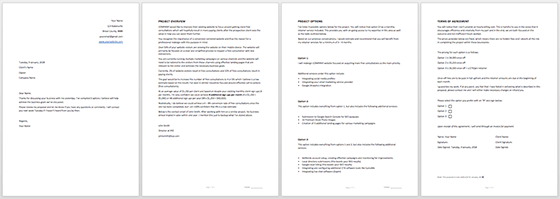
When it comes to sending a quote to prospective clients, it can often be 'make or break'.
It's important to follow the basics and to present it professionally.
When writing proposals, I will be the first to say that it's much easier to work with existing clients or clients who come to you directly compared with you approaching new clients.
You will obviously communicate with existing clients completely differently than if it were new clients, but I am mainly speaking about new clients.
One important thing I notice most developers do in their proposals is they only give one option.
ALWAYS give three options…
Here's a brief summary based for an ecommerce site:
(Notice the upselling and price anchoring)
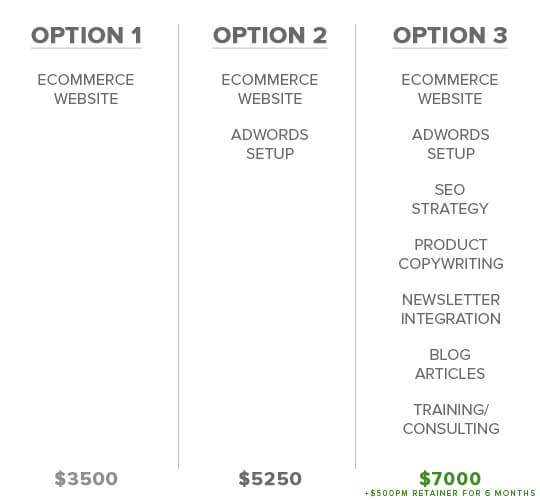
You'll notice I mentioned quite a few things in option 3 that don't necessarily relate to web development, but it does relate to achieving online business success.
You can read more about it in this article I wrote about digital marketing.
You can download a free copy of the Proposal Template here
Clients Don't Always Go For The Cheaper Option

W. Poundstone's book, Priceless, covers an interesting experiment selling beer.
A group of people were offered 2 kinds of beer: premium beer for $2.50 and cheaper beer for $1.80.
Almost 80% chose the premium beer.
After this test, a third super bargain beer was added as an option for $1.60 in addition to the previous two. Now 80% bought the $1.80 beer and the rest bought the $2.50 beer. Nobody bought the cheapest option.
On the third test, they removed the $1.60 beer and replaced it with a a more expensive $3.40 beer. Most people chose the $2.50 beer, a small number $1.80 beer and around 10% opted for the most expensive $3.40 beer.
Takeaway: stay away from being the cheapest option.
Clients LOVE developers who ask more questions about the project.
Add suggestions where necessary and don't be afraid to recommend something completely different to what they might have in mind.
For more about pricing (value vs hourly, read this).
Here are some great articles on pricing as well:
Don't Be the Cheapest, Be the Best
5 Psychological Studies on Pricing That You Absolutely MUST Read
There is a common misconception going around which is depending on the CMS or programming languages that you use, it should directly relate to the amount the client has to pay.
What I mean by this is many programmers think that because they use a $50 website theme on WordPress, they need to charge a small fee due to the site being pretty much done.
Or they think that if they code it by scratch, it should be worth much more.
2 main reasons why this thinking is wrong:
- You are not running a NGO or NPO. You are a business and businesses need to make a profit.
- The client is paying for your experience and skillset and you are not selling an 'off-the-shelf' commodity product, you are selling a solution to help grow their business.
Target A Niche, Seriously…

What I'm going to explain next is very important. If you can just take note of this section, it would be worth your time reading this article.
Do you want clients coming to you?
Do you want to work less and earn more?
If you answered yes to the two questions above, you need to do these 3 things:
- Find a web design niche
- Position yourself as an expert in that niche
- Offer services to clients only within that niche
Practical Example:
- I choose the niche: Chiropractors
- I create a website all about Chiropractors, the market, what they could be doing to improve sales, etc.
- I offer website development services, SEO, AdWords and other digital marketing skills only to the Chiropractor niche.
Now, if you had to give a proposal to chiropractor companies from your business, 'ChiroWebUSA' (random business name) vs someone who just does websites for every single niche out there, what do you think will happen?
- You will instantly be seen as a professional in the industry.
- You will close many more deals compared with someone who just does websites for everyone.
- You can charge a premium price.
- Because you know the industry well (after researching it) you are able to create websites faster and offer the services quicker and more effectively compared with other developers.
I know I over simplified it, but I am not talking fluff here. This strategy works much more effectively than just doing websites for every niche out there.
The reason I mentioned this is because this strategy directly effects how much you can charge for your projects, your conversion rate of getting clients and the hours worked on the project.
Just pause right here and think this through for a few seconds…
Charging for a WordPress Website
John (the client) wants a website. You then find a theme on WordPress for free, and you create it for him in one day.
So you will obviously charge your daily rate, right?
WRONG
I want to tell you about the old man with the hammer:
One fine, sunny day, the owner of a large million-dollar ship found out that the engine is not working.
He called every engineer on board and the surrounding towns, but no one could fix it.
Then they brought in an old man who specializes in fixing ship engines. He immediately got to work and inspected the engine from top to bottom.

The owner was watching as the old man reached into his bag, took out a small hammer, tapped something with the hammer, and the engine was instantly brought to life.
A week later, the owner received an invoice from the old man for $10,000.
The ship owner didn’t want to pay for it and said, “He hardly did anything!” So he requested for an itemized bill.
This is what the old man sent:
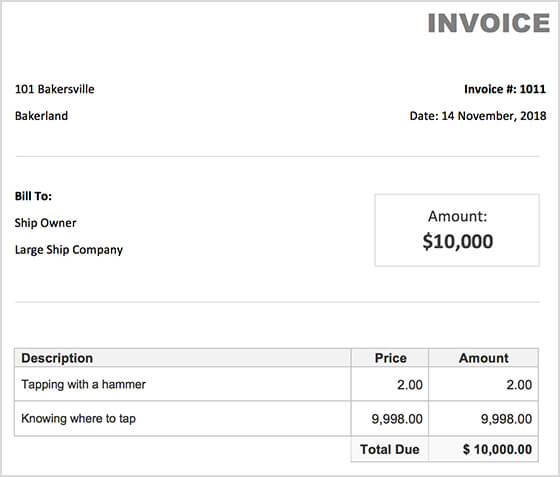
A lifetime of experience made him an expert at fixing ship engines and he had every right to charge like one.
...but John said he can get it done somewhere else for cheaper?
Let me share a truth with you:
There will ALWAYS be someone cheaper than you. If you're trying to be the cheapest, you're on a race to the bottom with no profit and a stress overload.
If John wants to pay peanuts for the website, let him... there are thousands of other clients out there who understand the value of what a professional website can mean for their business.
Here's the bottom line in pricing your WordPress websites for clients:
Regardless of whether a website takes you one day or 3 months, you DO NOT charge based on TIME, you charge based on the VALUE (Potential ROI) for the business.
How Much To Charge For A Website

The main thing you need to do is to figure out how much the site is worth to the business.
Example:
A business sells 3D Printers and they want a website.
This is the system I follow:
- Find out if the business has an existing website
- Find out what their competitors are doing that they aren't doing
- See if the business has active AdWords campaigns
- See how the business ranks on Google (SEO)
- See if the business has social media profiles
- Find out how much the average 3D printer costs
- Find out how many printers the business sells every month
With this information, I'd be able to figure out if I can really make an improvement in the sales of this business and I'd know exactly how much to charge for the project.
So if the business sells an average of ten 3D printers at an average of $2,000 each per month ($20k sales per month) and after calculating that I could potentially increase sales by 30% month after month, it then equals an extra three sales per month (or $6,000).
I then mention this to the prospective client and say even if we work on just 2 extra sales per month, it adds up to an extra $48,000 per year just by the changes and improvements I will be doing.
Therefore, spending $8,000 once-off for the website to potentially increase sales by almost $50,000 in one year is a no-brainer…
If this method is new to you, it may sound a bit confusing or you may have a lot of practical questions running through your head, so I will attempt to answer some of them:
How Can You Be So Sure That The Business Will Achieve Success?
Honestly, there's no guarantee… but after analysing the business and following the steps above, I can get a pretty good idea about if I can increase sales for the business. If I am confident about it, I go ahead with the proposal. Otherwise I politely decline and say I am not able to do much for improvements.
How Successful Are You With This Method?
70% on average. I've lost a few decent projects this year by using this method, however the ones that came through far out perform the projects lost. This is me though, you may be better or worse, but it's something you will always improve on the more you do it.
How Can You Rip The Business Off Like This?
Very harsh question :) But it's not ripping the business off… I am merely getting paid a fair amount for the work input and the potential output is a good financial return.
What if the business doesn't tell you their sales figures?
For medium to large businesses, I've never had an issue with them not telling me as I explain I am not just doing a website, I want to improve sales and in order for me to know that I need to know the current sales (and I'm willing to sign a non-disclosure form). For large corporations, I can understand why they wouldn't and I personally don't work with any, nor do I want to.
What if I only know how to make websites?
You can still do well by just creating the website and not any digital marketing things for the business. I just recommend it as I find it easier to get clients with this knowledge and I've seen it work many times in the 'real-world'.
Now that you've read this article, read my article called Hourly Billing vs Value-Based Pricing to learn why charging by the hour is bad for you and the client.
We can discuss a lot about pricing, how to position yourself and how to handle objections, etc. but that would be a book or course itself.
Which is exactly what I did :)
If you are interested in becoming a freelancer that has all the freedoms of helping businesses succeed, join 5,000+ others and take a look at my freelancing course.
A lot of effort went into this article, so if you find it helpful, please share it with others :)
 by Kyle Prinsloo Last updated Oct 6, 2023
by Kyle Prinsloo Last updated Oct 6, 2023